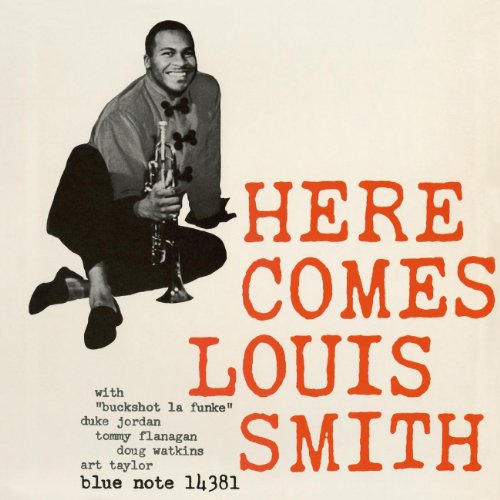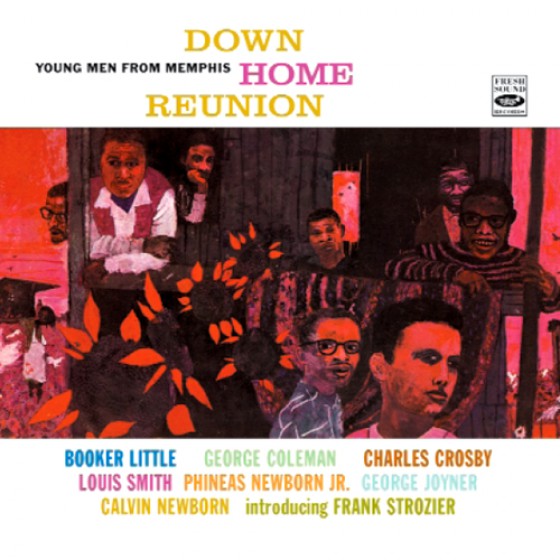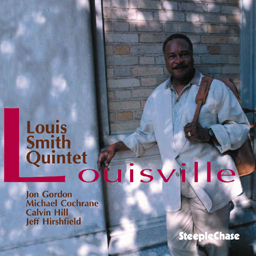Louis Smith 1931–2016
 Ann Arbor’s most well-known jazz musician, trumpeter Louis Smith, passed away on August 20 while doing his regular workout at Glacier Hills. Smith spent much of his life in Ann Arbor studying and teaching at the University of Michigan and then in the public schools, most of that time at Forsythe Middle School, where he was a much loved and influential teacher of several generations of players for the next twenty years. Many that he mentored went on to become professional musicians.
Ann Arbor’s most well-known jazz musician, trumpeter Louis Smith, passed away on August 20 while doing his regular workout at Glacier Hills. Smith spent much of his life in Ann Arbor studying and teaching at the University of Michigan and then in the public schools, most of that time at Forsythe Middle School, where he was a much loved and influential teacher of several generations of players for the next twenty years. Many that he mentored went on to become professional musicians.
Edward Louis Smith was born in Memphis in 1931 where he learned his craft, perfecting it at Tennessee State University around future jazz greats like his cousin trumpeter Booker Little, saxophonist George Coleman and pianist Phineas Newborn. After receiving his B.S. in music from TSU in 1952, he decided to pursue his graduate studies at the University of Michigan in the early fifties, during which he also gigged with Thad Jones and others at the Blue Bird Inn in Detroit. After serving in the Army (1954–55) in Atlanta he stayed around to teach high school.
 Smith made his first record in 1958 and was immediately signed to an exclusive contract with the Blue Note record label. That was the breakthrough year of his career: between February and May he recorded two albums under his own name, Here Comes Louis Smith and Smithville, both in the company of some of the finest players of the day, including Cannonball Adderley, Tommy Flanagan and Art Taylor, but also took part in a recording that appeared on three albums by the great guitarist Kenny Burrell (Swingin’, Blue Lights vols. 1 & 2). He also joined the Horace Silver Quintet, one of the premier jazz groups of the time; a recording of their performance in the summer of 1958 was issued in 2008 to critical acclaim. But Smith did not like life on the road and left the group soon after that recording was made.
Smith made his first record in 1958 and was immediately signed to an exclusive contract with the Blue Note record label. That was the breakthrough year of his career: between February and May he recorded two albums under his own name, Here Comes Louis Smith and Smithville, both in the company of some of the finest players of the day, including Cannonball Adderley, Tommy Flanagan and Art Taylor, but also took part in a recording that appeared on three albums by the great guitarist Kenny Burrell (Swingin’, Blue Lights vols. 1 & 2). He also joined the Horace Silver Quintet, one of the premier jazz groups of the time; a recording of their performance in the summer of 1958 was issued in 2008 to critical acclaim. But Smith did not like life on the road and left the group soon after that recording was made.
 He was briefly back studying in Ann Arbor in 1959 and also made time for one more recording in New York, Young Men from Memphis, with his childhood friends, including his cousin Booker Little, to whom he had given his first trumpet years earlier. He worked as band director at Tennessee State University (1960–65) and Kentucky State University (1965–68) before returning to Ann Arbor. Smith taught instrumental music at Forsythe starting in 1968, was Director of Jazz Bands at U-M from 1971, and also spent some time at Pioneer High School. Summers were often spent as Director of All-State Jazz Programs at Interlochen National Music Camp.
He was briefly back studying in Ann Arbor in 1959 and also made time for one more recording in New York, Young Men from Memphis, with his childhood friends, including his cousin Booker Little, to whom he had given his first trumpet years earlier. He worked as band director at Tennessee State University (1960–65) and Kentucky State University (1965–68) before returning to Ann Arbor. Smith taught instrumental music at Forsythe starting in 1968, was Director of Jazz Bands at U-M from 1971, and also spent some time at Pioneer High School. Summers were often spent as Director of All-State Jazz Programs at Interlochen National Music Camp.
 After retiring from teaching Smith picked up his recording career in 1978 when he recorded his first album for SteepleChase records with a long line of notable sidemen, including fellow Tennesseans Harold Mabern and George Coleman. He recorded a total of twelve albums for SteepleChase and also toured abroad, often playing in Paris.
After retiring from teaching Smith picked up his recording career in 1978 when he recorded his first album for SteepleChase records with a long line of notable sidemen, including fellow Tennesseans Harold Mabern and George Coleman. He recorded a total of twelve albums for SteepleChase and also toured abroad, often playing in Paris.
Louis and his wife Lulu were active in the local community and served on the Board of SEMJA for a few years, but in 2005 he had a setback when he suffered a stroke. Lulu, who was such a dedicated and loving presence in his life, and therapists at the U-M Aphasia Clinic worked at bringing his speech back for many years with some success. Louis was celebrated at the 2006 Detroit Jazz Festival (where he often performed), and in 2011 received the SEMJA Award at an event that featured several of his former students: altoist Alex Graham, pianist Rick Roe, and drummer Sean Dobbins.
Smith left an imprint on the jazz life of Ann Arbor, Detroit, and the world and will be remembered fondly by many. He remained an artist and a gentleman throughout his life; his kindness and caring combined with deep musical knowledge and the strength of well-founded opinions made him a great teacher and a wonderful companion. We were privileged to have enjoyed his company.
Nies Funeral Home, 2400 Carpenter Rd. in Ann Arbor, will hold visitation Monday, August 29, 2016, from 4:00 to 8:00 p.m. Funeral services will be Tuesday, August 30, 2016, at Nies Funeral Home at 11:00 a.m. In lieu of flowers, the family asks that donations be made to Kerrytown Concert House. |